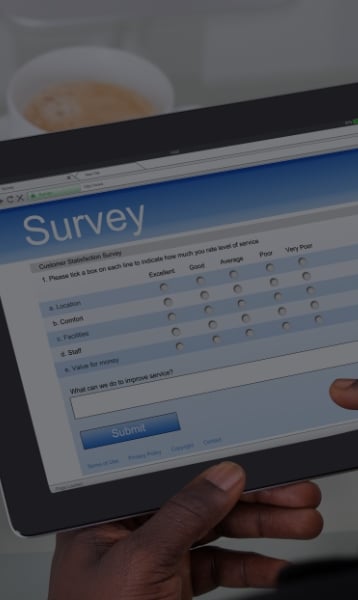The benchmarking portal gives you access to all reports available for STD, LTD, FML & WC.
Strategies for Employers to Support Mental Health in the Workplace


Jennifer Santisi
The mental health landscape among employees has changed over the last few years. It’s an issue that’s top of mind for employers, and many new platforms and programs have been put into place to address these challenges. It can be overwhelming for employers and employees alike to navigate the benefits solutions out there.
IBI President Kelly McDevitt moderated a Q&A with Tara Sherman, Mental Health and Well-being Strategy Leader, The Boeing Company, who provided an employer perspective on challenges and strategies around supporting employees during IBI’s webinar in March on mental health.
“There is this emphasis on mental health,” Tara said, “we were all suffering as a world, not just a country. The social contract [with employees] evolved to not only providing services, but also education for employees and managers on how to support their teams.”
Tara emphasized that communication and awareness are key. Boeing added well-being hours with workshops on a myriad of topics—mental health 101, sleep sessions, and how to find a good therapist. They worked with supplier partners to bring in experts to host workshops. “Those organizations we work with are part of our ecosystem to make sure our employees are getting the best care they can,” Tara explained.
Boeing also added virtual care options, including a virtual option specific to adolescent therapy- a much needed resource that can be hard to find. Their health plan provider added a navigation service, giving employees the opportunity to call a number and be guided through next steps and finding the right provider. Employees can be matched with providers that meet their needs, whether it be a certain gender, ethnicity or LGBTQ+ focus. This reduces the friction and challenges employees face with accessing that initial appointment.
Tara emphasized that an important aspect of their communication plan around mental health is telling employee stories. “By sharing employee’s stories that brings the conversation in and reduces stigma. It can be intimidating to approach these conversations,” she said.
IBI's Director of Research Candace Nelson, ScD, MA discussed the findings on incidences of depression and anxiety symptoms among the US workforce, and demographic differences in the data. According to IBI’s analysis, overall symptoms of anxiety or depression have declined from 40% during the height of the pandemic to 35% during our study period (7/21-8/22).
The rate of individuals taking a mental health prescription medication has increased from 20% to 22%, and the unmet need for counseling has also increased from 12% to 14%. Women are more likely (38%) to report symptoms of anxiety and depression than men (33%). The prevalence of anxiety and depression symptoms also decrease with age. The LGBTQ+ community reports a higher incidence (49%) of anxiety and depression symptoms than straight/cis-gender (34%).
IBI partnered with Elevance Health to analyze claims data related to mental health. Kathryn Caiazzo, RN, Staff VP Sales Operations at Elevance Health presented claims data. Six million members were included in the data period; 9% of members had a diagnosis of depression and anxiety, and 17% of members filled an antidepressant medication. COVID-19 also fueled the need for virtual care, and we see that in Elevance’s claims data.
“As Candace mentioned, we have significantly more women seeking out care…some of the younger generations are having more difficult with anxiety and depression. It’s something we need to dig into further…At Elevance, we’re deeply concerned and we would like to help address the problems that we’re seeing in the younger ages,” said Kathryn.
“Anxiety and depression are a comorbidity diagnosis with obesity, diabetes, heart disease, cancer,” shared IBI President Kelly McDevitt. “While we look at utilization and survey questions, what we didn’t really dive deep into having a disease state which is associated with physical conditions. Those are ways we need to start addressing that diagnosis, and how we can have programs in place that looks at what is keeping you from getting better today.”
There are opportunities for further research, and IBI will be tackling more questions and analyzing further data around mental health at the end of 2023.
- February 2025 (1)
- December 2024 (2)
- March 2024 (1)
- January 2024 (1)
- October 2023 (3)
- September 2023 (1)
- July 2023 (1)
- May 2023 (1)
- April 2023 (1)
- February 2023 (1)
- January 2023 (1)
- December 2022 (1)
- November 2022 (1)
- October 2022 (1)
- September 2022 (1)
- August 2022 (2)
- July 2022 (1)
- June 2022 (3)
- May 2022 (2)
- April 2022 (1)
- March 2022 (2)
- February 2022 (1)
- January 2022 (1)
- December 2021 (1)
- November 2021 (1)
- October 2021 (1)
- August 2021 (1)
- July 2021 (2)
- June 2021 (1)
- May 2021 (1)
- April 2021 (1)
- February 2021 (1)
- January 2021 (3)
- August 2020 (1)
- July 2020 (3)
- May 2020 (1)
- April 2020 (4)
- March 2020 (4)
- February 2020 (1)
- January 2020 (1)
- November 2019 (2)
- July 2019 (4)
- June 2019 (3)
- May 2019 (2)
- April 2019 (2)
- March 2019 (3)
- February 2019 (7)
- January 2019 (9)
- November 2018 (6)
- October 2018 (3)
- September 2018 (3)
- August 2018 (2)
- July 2018 (4)
- March 2018 (22)
- February 2018 (1)
- October 2017 (1)
- September 2017 (1)
- August 2017 (1)
- July 2017 (1)
- June 2017 (3)
- May 2017 (2)
- April 2017 (1)
- March 2017 (29)
- February 2017 (1)
- January 2017 (1)
- December 2016 (3)
- November 2016 (2)
- October 2016 (1)
- August 2016 (3)
- May 2016 (2)
- April 2016 (8)
- February 2016 (29)
- January 2016 (1)
- December 2015 (2)
- July 2015 (4)
- June 2015 (6)
- May 2015 (1)
- April 2015 (1)
- March 2015 (22)
- February 2015 (1)
- January 2015 (1)
- December 2014 (1)
- November 2014 (1)
- October 2014 (2)
- September 2014 (1)
- August 2014 (3)
- July 2014 (2)
- June 2014 (1)
- May 2014 (2)
- April 2014 (4)
- March 2014 (8)
- February 2014 (1)
- January 2014 (1)
- December 2013 (2)
- November 2013 (2)
- October 2013 (4)
- August 2013 (1)
- July 2013 (3)
- May 2013 (13)
- March 2013 (2)
- February 2013 (9)
- January 2013 (1)
- December 2012 (1)
- November 2012 (1)
- June 2012 (1)
- May 2012 (1)
- April 2012 (1)
- August 2011 (1)
- June 2011 (3)
- May 2011 (1)
- April 2011 (2)
- March 2011 (1)
- February 2011 (2)
- November 2010 (1)
- October 2010 (1)
- June 2010 (1)
- March 2010 (1)
- January 2010 (2)
- October 2009 (1)
- July 2009 (1)
- May 2009 (2)
- March 2009 (1)
- January 2009 (1)
- November 2008 (1)
- October 2008 (2)
- September 2008 (1)
- August 2008 (1)
- June 2008 (1)
- May 2008 (1)
- April 2008 (2)
- March 2008 (1)
- February 2008 (1)
- January 2008 (2)
- December 2007 (1)
- November 2007 (1)
- October 2007 (1)
- September 2007 (1)
- August 2007 (1)
- July 2007 (1)
- June 2007 (1)
- May 2007 (2)
- March 2007 (1)
- February 2007 (1)
- January 2007 (1)
- August 2006 (1)
- June 2006 (1)
- March 2006 (1)
- May 2005 (1)
- July 2004 (1)
- 2019 (1)
- 2020 (1)
- Absence (2)
- Absence Management (4)
- Article (105)
- Behavioral Health (2)
- Benchmarking (9)
- Benefit Design (11)
- Benefits + Plan Design (26)
- Blog (72)
- Burnout (1)
- Business Performance (2)
- Business Value of Health (21)
- Cancer (3)
- Cardiovascular Disease (4)
- Care Management (1)
- Care Quality (1)
- Caregiving (3)
- Case Studies (7)
- Chronic Conditions (2)
- Communicating H&P to Business Leaders (1)
- Community Health (2)
- Comparative Effectiveness Research (1)
- Connecting HR to Operations (1)
- COVID-19 (13)
- Culture of Health (1)
- Culture of Health + Safety (29)
- Data (1)
- Data Driven Decision Making (1)
- Depression (5)
- Diabetes (5)
- Disability Leave (41)
- Disease Burden (1)
- Employer Perspectives (5)
- Engage Employees (45)
- Event Recap (2)
- Exchanges (4)
- Family + Parental Leave (8)
- FMLA (2)
- Headache (1)
- Health + Productivity Management (54)
- Health Inequities (1)
- Healthcare (2)
- Healthcare Costs (17)
- HPM Survey (3)
- IBI Agenda (2)
- IBI Presents (9)
- immunization (1)
- Industry Profile (1)
- Integrating Health Data (12)
- Invest In Health (52)
- Leave Benchmark Survey (1)
- Linking Health to Business Performance (1)
- Make The Business Case (54)
- Manage Absence (70)
- Market Perspectives (29)
- Maternity (1)
- Measurement (2)
- Measuring Outcomes (21)
- Medication Adherence (1)
- Mental + Emotional Health (16)
- Mental Health (7)
- Migraine (2)
- MSD (1)
- MSK (1)
- Multi-Study Spotlight (23)
- Musc (1)
- Musculoskeletal Disorders (12)
- National Forum (1)
- Obesity (2)
- Occupation (1)
- Online Events (17)
- Pain Management (1)
- Patient Resources (1)
- Patient-Centered (2)
- Pharmacy (5)
- Physical Activity (1)
- Popular and Timely (11)
- Practical Guidance (6)
- Pregnancy (1)
- Presenteeism (1)
- Presenteeism / Job Performance (3)
- Preventive Care (1)
- Previous Forums (109)
- Productivity (46)
- Provider Quality (1)
- Regional Events (1)
- Research (22)
- Research Based Healthcare Evidence (1)
- Research Report (2)
- Research Review (3)
- Return to Work (19)
- Risk Management (11)
- SAW / RTW (1)
- Scholarly Work (2)
- Short-Term Disability (2)
- Sick Leave (15)
- Social Determinants of Health (1)
- Stay at Work (1)
- Stay-at-work / Return-to-work (1)
- STD (2)
- Strategies (1)
- Stress (2)
- Suicide (2)
- Surveys (3)
- Talking to Leadership (4)
- Telehealth (3)
- Understand Health Risks (34)
- Value-based Benefit Design (1)
- Vendor Integration (1)
- Video (3)
- virtual care (1)
- virtual health (1)
- Weight Control (5)
- Well-being (16)
- Wellness + Lifestyle (17)
- Working Remotely (4)
- Workplace Culture of Health (2)
- Workplace Health Programs (1)
- Admin
- Brian Gifford
- Brian Gifford Ph.D. Director, Research and Analytics, IBI
- Candace Nelson
- Carole Bonner
- Carolyn Ho
- Carolyn Ho, IBI Communications Lead
- Erin Peterson
- Erin Peterson, Researcher
- Gia Harris
- IBI
- IBI Member
- IBI Research Team
- Integrated Benefits Institute
- Jennifer Santisi
- Jim Huffman
- Kelly McDevitt, IBI President
- Marshall Riddle
- Nicole Nicksic, PhD, MPH Research Lead
- Sera-Leigh Ghouralal
- Thomas Parry, PhD Senior Advisor, Integrated Benefits Institute


























.png?width=900&name=Copy%20of%202024%20Research%20Priorities%20Banner(5).png)

